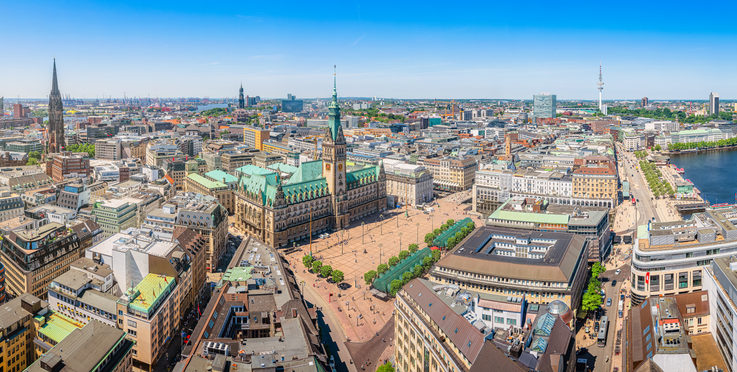
The city of Hamburg, Germany is working to meet its 2023 and 2030 targets for CO2 reduction – with the city’s solar power program having the highest priority. It is currently examining all 700 city-owned buildings to assess which can support photovoltaic systems, with the eventual goal of creating a total of 100,000 square meters of photovoltaic space on municipal and private buildings throughout the city.
The installation of solar panels on the roofs of governmental buildings will happen in a multiphase program – with the first phase scheduled to be completed by 2023. Three local solar companies have signed a letter of intent stating that they will be able to provide 13 megawatts of clean energy by the end of this phase. An output of 50 megawatts is expected in the final phase.
Along with the municipal program, The Ministry for Urban Development and Housing is examining how the CO2 balance of Hamburg’s residential buildings could most effectively be improved. It is currently conducting an online survey of a randomised selection of 35,000 owners of residential buildings to get an overall picture of the structural and technical state of the residential buildings in the city. This information will later be used to determine the cost and feasibility of any required modernisation.
The city is striving to balance the need to achieve its climate targets with guaranteeing affordability for the owners and tenants. Late last year, the Senate voted to require that 15% of the energy powering a building’s heating system after renovation should come from renewable sources. According to city authorities, that measure alone will save 60,000 tons of CO2 by the year 2030.